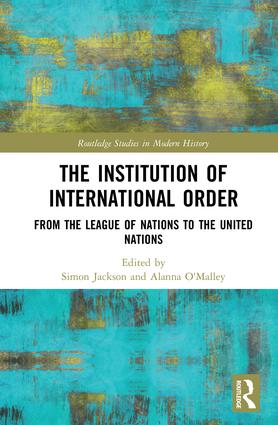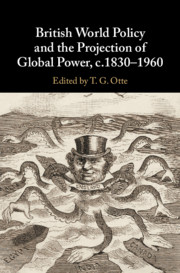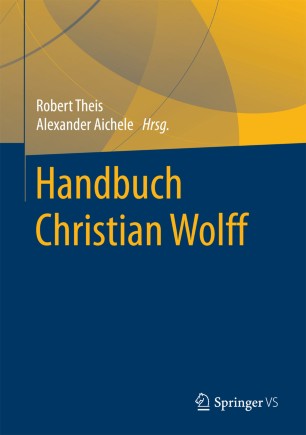Oxford University Press is publishing a new edited collection on South-North perspectives to the decolonisation era.
ABOUT THE BOOK
This volume provides the first comprehensive analysis of international legal debates between 1955 and 1975 related to the formal decolonization process. It is during this era, couched between classic European imperialism and a new form of US-led Western hegemony, that fundamental legal debates took place over a new international legal order for a decolonised world. The book argues that this era presents in essence a battle, a battle that was fought out in particular over the premises and principles of international law by diplomats, lawyers, and scholars. In a moment of relative weakness of European powers, 'newly independent states' and international lawyers from the South fundamentally challenged traditional Western perceptions of international legal structures engaging in fundamental controversies over a new international law. The legal outcomes of this battle have shaped the world we live in today.
Contributions from a global set of authors cover contemporary debates on concepts central to the time, such as self-determination, sources and concessions, non-intervention, wars of national liberation, multinational corporations, and the law of the sea. They also discuss influential institutions, such as the United Nations, International Court of Justice, and World Bank. The volume also incorporates contemporary regional approaches to international law in the 'decolonization era' and portraits of important scholars from the Global South.
ABOUT THE EDITORS
Edited by Jochen von Bernstorff, Chair of International Law and Human Rights, Law Faculty, University of Tübingen, and Philipp Dann, Chair of Public and Comparative Law, Faculty of Law, Humboldt University Berlin
Jochen von Bernstorff is currently the Dean of the Tübingen Law Faculty (since 2018), holds the Chair for Constitutional law, International Law and Human Rights (since 2011), and has taught international law as a visiting professor at the German Federal Foreign Office Academy Berlin, Université Panthéon-Assas (institut des hautes études internationales), Université Aix-Marseille and National Taiwan University Taipei. He has acted as a consultant for the German Government and various UN-institutions on human rights, development and international environmental law issues.
Philipp Dann holds the Chair of Public and Comparative Law at Humboldt University Berlin (since 2014) and is principal investigator in the Cluster of Excellence 'Contestations of the Liberal Script' (since 2019). He holds degrees from Frankfurt University (PhD and post-doctoral Habilitation) and Harvard Law School (LL.M.) and has taught German, European and public international law in Germany, France, India, Kenya, the Sudan and the US.
TABLE OF CONTENTS
Introduction
The Battle for International Law: A Sketch, Jochen von Bernstorff and Philipp Dann
Part I: Sites of Battle
A. Concepts - Kampfbegriffe
1: The Common Heritage of Mankind: Annotations on a Battle, Surabhi Ranganathan
2: The Battle for the Recognition of Wars of National Liberation, Jochen von Bernstorff
3: The Developmental State: Independence, Dependency and the History of the South, Luis Eslava
4: Colonial Fragments: Decolonisation, Concessions and Acquired Rights, Matthew Craven
5: Acquired Rights and State Succession - The Rise and Fall of the Third World in the International Law Commission, Anna Brunner
6: Rival Worlds and the Place of the Corporation in International law, Sundhya Pahuja and Anna Saunders
7: The Battle Continues: Rebuilding Empire through Internationalization of State Contracts, Muthucumaraswamy Sornarajah
8: (De)colonizing Human Rights, Florian Hoffmann and Bethania Assy
9: Picking Battles: Race, Decolonization, and Apartheid, Rotem Giladi
B. Institutions
10: The International Court of Justice During the Battle for International Law (1955-1975)-Colonial Imprints and Possibilities for Change, Ingo Venzke
11: The Battle and the United Nations, Guy Sinclair
12: The World Bank in the Battles of the 'Decolonization Era', Philipp Dann
Part II Individual Protagonists and Regional Perspectives
A. Individual Protagonists
13: Reading R.P. Anand in the Postcolony: Between Resistance and Appropriation, Prabhakar Singh
14: Taslim Olawale Elias: From British Colonial Law to Modern International Law, Carl Landauer
15: Determining New Selves: Mohammed Bedjaoui on Algeria, Western Sahara, and Post-Classical International Law, Umut Özsu
16: Charles Chaumont's Third World International Legal Theory, Emamanuelle Tourme Jouannet
B. Regional Perspectives
17: Literal 'Decolonisation': Re-reading African International Legal Scholarship through the African Novel, Christopher Gevers
18: The Soviets and the Right to Self-Determination of the Colonized: Contradictions of Soviet Diplomacy and Foreign Policy in the Era of Decolonization, Bill Bowring
19: The Failed Battle for Self-Determination: The United States and the Postwar Illusion of Enlightened Colonialism, 1945-1975, Olivier Barsalou
Epilogue
What's Law Got to Do with it? Recollections, Impressions, Martti Koskenniemi















